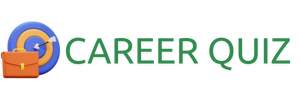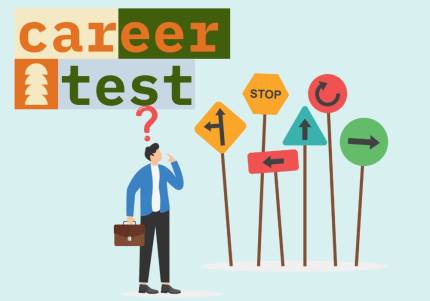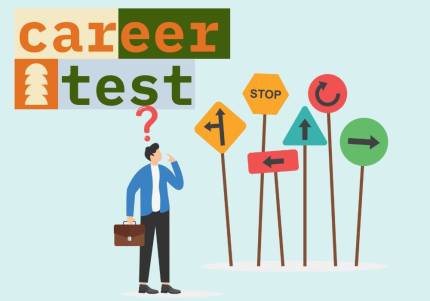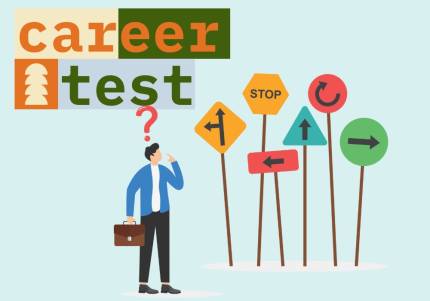Best Career Assessments for College Freshmen
- 20 May 2025

The Critical Freshman Transition
The freshman year of college represents a pivotal transition period where students confront unprecedented academic autonomy amid intense pressure to make consequential decisions about majors and career directions. Traditional orientation programs often emphasize campus logistics and social integration while providing minimal structured guidance for academic and career planning. This gap contributes to concerning statistics—approximately 30% of undergraduates change their major at least once, with each change typically adding a semester to degree completion timelines and thousands of dollars in additional costs.
Strategic career assessment during this crucial transition year provides valuable guidance that can prevent costly detours and enhance overall college experience. Beyond simple major selection, early assessment helps freshmen make intentional decisions about course electives, research opportunities, internship preparation, and extracurricular involvement that collectively shape their professional trajectory. This guided exploration often reduces anxiety around major selection by replacing vague uncertainties with concrete information.
Assessment Timing Considerations
The optimal timing for freshman career assessment balances two competing factors. Assessment too early in the transition process may yield distorted results as students haven't yet experienced the college academic environment or developed stable campus identities. However, delaying assessment until sophomore year often means critical decisions about major declaration and course sequences have already narrowed available pathways significantly.
Most college career centers recommend a two-phase assessment approach during freshman year. An initial orientation-period assessment provides preliminary guidance for first-semester course selection and activity exploration. A more comprehensive follow-up assessment during winter break or early second semester incorporates insights from initial college experiences while still informing major declaration decisions typically finalized during sophomore registration periods.
Key Assessment Focus Areas for Freshmen
- Academic Interests - Subject areas that naturally engage curiosity and effort
- Aptitude Patterns - Natural abilities that may indicate promising directions
- Work Values - Priorities regarding future work environments and conditions
- Initial Identity Exploration - Emerging professional self-concept
- Major-Career Connections - Understanding pathways from academic programs to careers
Recommended Assessment Instruments
Several assessment instruments have proven particularly effective for the freshman transition period. The Myers-Briggs Type Indicator (MBTI) provides insights into information processing and decision-making preferences that influence both learning styles and potential career satisfaction. While not directly a career assessment, MBTI results help freshmen understand their natural approaches to academic environments and identify compatible work contexts.
The Strong Interest Inventory offers detailed comparison between student interest patterns and those of satisfied professionals across fields, providing guidance beyond preconceived notions about career options. The StrengthsFinder assessment identifies signature talents that can be developed through strategic course selection and activity involvement. The Career Values Card Sort helps freshmen articulate their emerging professional priorities regarding workplace environments and conditions.
Comparison of Freshman Assessment Options
| Assessment | Primary Focus | Ideal Timing | Unique Advantage |
|---|---|---|---|
| Myers-Briggs Type Indicator | Personality preferences | First semester | Learning style insights |
| Strong Interest Inventory | Interest patterns | Winter break | Extensive occupational database |
| StrengthsFinder | Talent identification | Early second semester | Development-focused approach |
| Career Values Card Sort | Workplace priorities | Mid-first year | Interactive self-discovery |
| TypeFocus | Integrated assessment | Anytime freshman year | Designed for educational context |
Integration with Academic Planning
Assessment results provide maximum value when directly integrated with academic planning processes rather than existing as isolated career center experiences. Progressive institutions incorporate career assessment results into freshman advising appointments, using findings to inform course selection discussions beyond basic requirement completion. This integration helps freshmen view general education requirements not simply as boxes to check but as strategic exploration opportunities aligned with emerging interests.
Some institutions have developed specialized freshman seminars coupling career assessment with major exploration, helping students connect assessment findings to specific academic programs available at their institution. These structured exploration courses typically include informational interviews with faculty representatives from potential major departments and upper-class student mentors who share their major selection journey.
Balancing Exploration and Declaration
Freshman career assessment must navigate carefully between supporting authentic exploration and facilitating timely major declaration. Modern assessment implementations emphasize identifying patterns and directions rather than prescribing narrow paths or specific occupations. This balanced approach helps students recognize promising areas deserving deeper investigation while respecting developmental realities of early college transition.
Career counselors working with freshmen often focus on eliminating clearly unsuitable directions rather than prematurely narrowing options. This "negative information" approach helps students refine their focus while maintaining appropriate exploration breadth. The process helps identify not just potential majors but also complementary minors, certificates, and extracurricular experiences that create distinctive professional preparation beyond default major pathways.
Virtual and Self-Directed Assessment Options
Recognizing varied student preferences and scheduling constraints, many institutions now offer multifaceted freshman assessment approaches combining traditional counseling appointments with virtual and self-directed options. Online assessment platforms like Focus 2 and Sokanu (Career Explorer) allow students to complete evaluations at convenient times and revisit results throughout their freshman experience as their perspectives evolve.
Mobile applications now enable continuous micro-assessments throughout freshman year, collecting preference data through brief, engaging interactions rather than single extensive sessions. These platforms then synthesize accumulated responses into evolving guidance, reflecting the developmental nature of freshman career exploration. Such approaches align with research showing that ongoing engagement with career questions produces more stable results than one-time assessment events.



